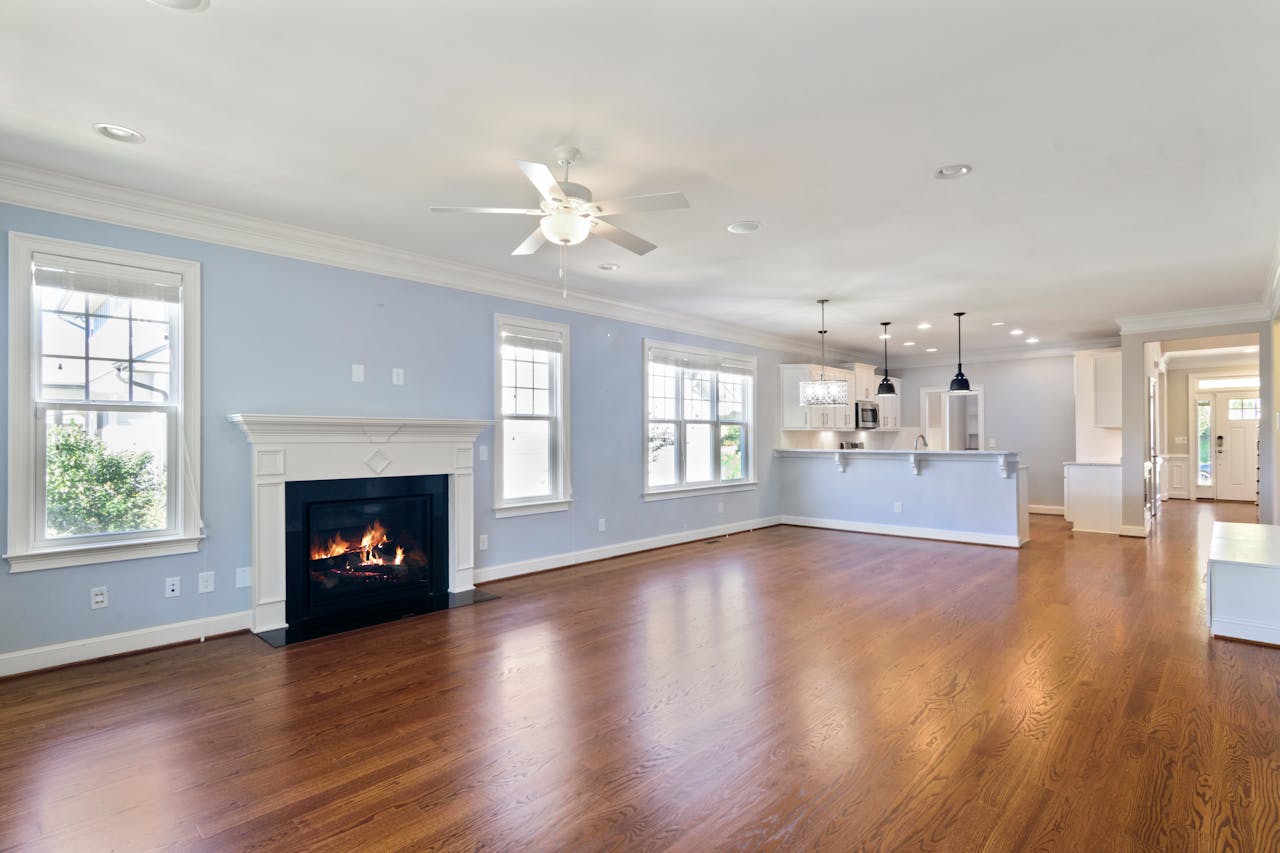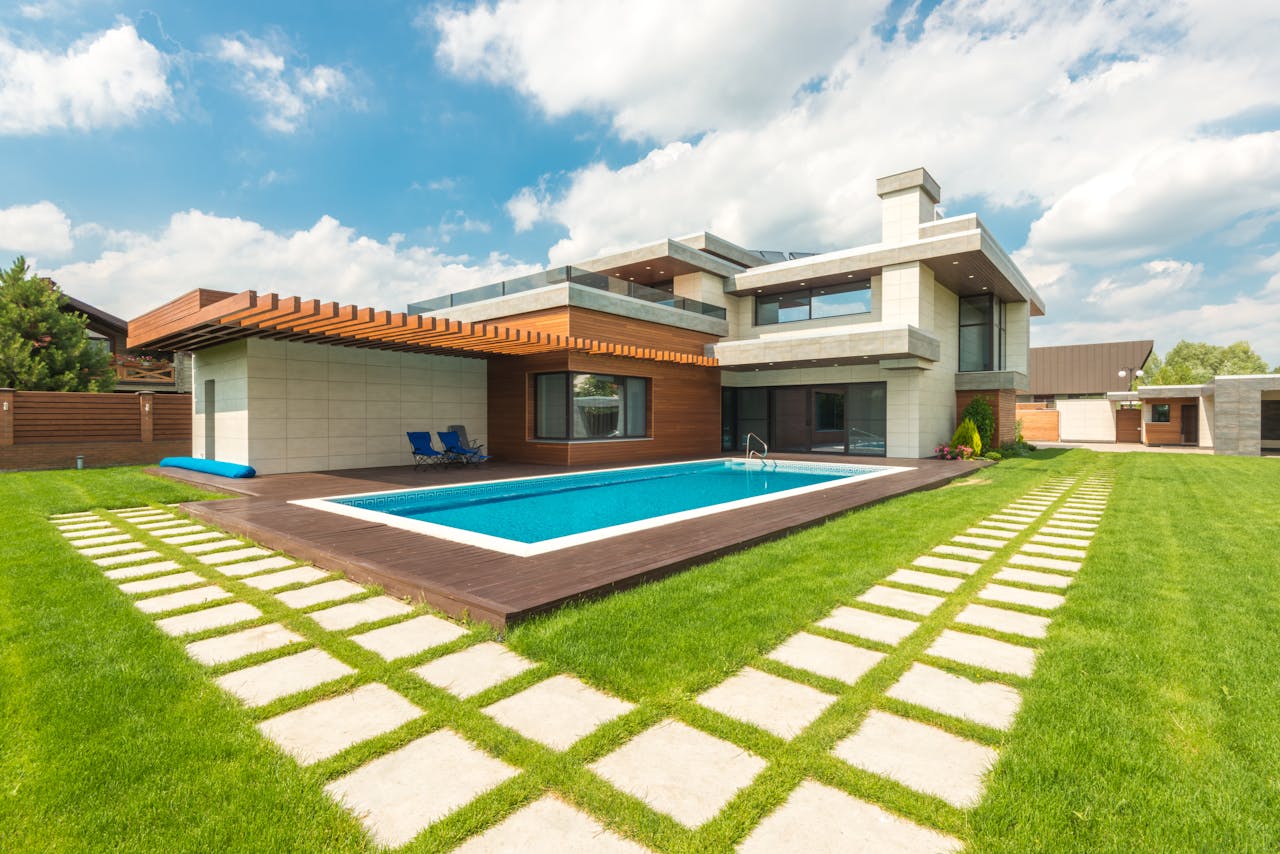As environmental concerns and sustainable living become increasingly important, eco-friendly homes have gained tremendous popularity in the real estate market. In 2024, buyers are more conscious than ever about their carbon footprint, energy consumption, and how their homes impact the environment. This shift in mindset is driving a growing demand for homes that are not only energy-efficient but also built with sustainability in mind. In this article, we’ll explore the reasons behind this trend, the benefits of eco-friendly homes, and how both homebuyers and sellers can adapt to this growing demand.
1. Why Are Eco-Friendly Homes in Demand?
Several factors contribute to the rising interest in eco-friendly homes, driven by a combination of environmental awareness, cost savings, and advancements in green technology.
Environmental Awareness: Climate change, pollution, and resource depletion are global issues that have prompted many people to adopt more sustainable lifestyles. As homeowners look to reduce their environmental impact, eco-friendly homes provide a tangible way to live in alignment with these values. More buyers are considering the sustainability of their homes when making purchasing decisions.
Energy Cost Savings: Energy-efficient homes not only help the environment but also save homeowners money in the long run. Features like solar panels, energy-efficient appliances, and improved insulation reduce monthly utility bills. With energy prices continuing to rise, the appeal of lower operating costs is a significant factor in the demand for eco-friendly homes.
Health Benefits: Many eco-friendly homes are built with non-toxic materials and better ventilation systems, which contribute to healthier indoor air quality. This is especially appealing to health-conscious buyers who prioritize the well-being of their families. Materials that avoid volatile organic compounds (VOCs) and other harmful chemicals also contribute to safer living environments.
Government Incentives: In many regions, governments are offering tax credits, rebates, and other incentives to homeowners who invest in energy-efficient upgrades. These programs make it easier for homeowners to offset the upfront costs of eco-friendly features and encourage more people to make the switch to sustainable living.
2. Key Features of Eco-Friendly Homes
What makes a home eco-friendly? While there are many ways to incorporate sustainability into a property, some key features define eco-friendly homes in 2024:
Energy Efficiency: Energy-efficient homes are designed to use less energy while maintaining comfortable living conditions. This includes the use of high-performance windows, energy-efficient heating and cooling systems, LED lighting, and insulation that minimizes heat loss in winter and keeps the home cool in summer.
Solar Power: Solar panels are one of the most visible and effective ways to reduce a home’s carbon footprint. They allow homeowners to generate their own renewable energy, reducing reliance on the grid and lowering utility bills. In many cases, excess energy can be sold back to the utility company, further offsetting costs.
Water Conservation: Eco-friendly homes often include water-saving fixtures like low-flow toilets, faucets, and showerheads. Rainwater harvesting systems and greywater recycling systems, which reuse water from sinks, showers, and washing machines for irrigation, are becoming increasingly common.
Sustainable Building Materials: The materials used in eco-friendly homes are chosen for their low environmental impact. This can include reclaimed wood, recycled steel, bamboo, and other sustainable materials that reduce the demand for new resources. Additionally, materials like cork and recycled glass are durable and require less maintenance over time.
Smart Home Technology: Many eco-friendly homes incorporate smart home technology to optimize energy use. Smart thermostats, lighting systems, and appliances allow homeowners to monitor and control their energy consumption remotely. These systems can be programmed to reduce energy use during peak times and make the home more efficient overall.
Green Roofs and Living Walls: Some eco-friendly homes feature green roofs or living walls, which are covered in vegetation. These not only provide insulation but also absorb rainwater, improve air quality, and support local biodiversity. Green roofs are especially popular in urban areas where space for gardens is limited.
3. The Benefits of Owning an Eco-Friendly Home
For homeowners and buyers alike, the advantages of owning an eco-friendly home extend beyond environmental stewardship. Here are some of the most compelling benefits:
Lower Operating Costs: Eco-friendly homes are designed to be more efficient, which translates into lower utility bills. Over time, the savings on electricity, water, and heating costs can be significant, making the home more affordable to maintain. While the initial investment in energy-efficient features may be higher, the long-term financial benefits make it worthwhile.
Increased Property Value: Homes with eco-friendly features are increasingly in demand, and buyers are often willing to pay a premium for these properties. As the market shifts toward sustainability, homes that offer energy savings, green materials, and smart technology are seen as more valuable. This means that investing in eco-friendly upgrades can increase your home’s resale value.
Healthier Living Environment: The use of non-toxic materials, improved ventilation systems, and water purification systems contribute to healthier indoor air quality. Eco-friendly homes minimize the risk of indoor pollutants, mold, and allergens, making them an attractive option for families with health concerns.
Positive Environmental Impact: Owning an eco-friendly home means reducing your carbon footprint and contributing to a more sustainable future. Every energy-efficient feature and sustainable material choice helps decrease the environmental impact of your household, aligning your lifestyle with eco-conscious values.
4. How Homebuyers Can Find Eco-Friendly Homes
If you’re in the market for an eco-friendly home, it’s essential to know what to look for and how to identify properties that meet your sustainability goals. Here are some tips for homebuyers interested in green living:
Work with a Green-Certified Real Estate Agent: Many real estate agents are now trained in eco-friendly home features and can help you find properties that align with your environmental goals. These agents have a deeper understanding of energy-efficient certifications and can guide you through the process of finding a sustainable home.
Look for Energy Star or LEED Certifications: Homes that are Energy Star certified meet strict energy efficiency standards set by the U.S. Environmental Protection Agency. LEED-certified homes (Leadership in Energy and Environmental Design) go even further, with criteria for sustainable building materials, water conservation, and overall environmental impact.
Inspect for Energy-Efficient Features: When touring homes, look for features like high-efficiency windows, smart thermostats, solar panels, and low-flow plumbing fixtures. Don’t be afraid to ask the seller or real estate agent for details about the home’s energy efficiency, utility costs, and any green upgrades that have been made.
Consider New Builds: Many new construction homes are built with eco-friendly features as standard. Modern building codes often require higher energy efficiency, and many developers are incorporating green technology into their designs. If sustainability is a priority, looking at new builds may give you more options.
5. How Sellers Can Attract Eco-Conscious Buyers
As the demand for eco-friendly homes grows, sellers who invest in sustainable upgrades can position their homes more attractively in the market. Here’s how you can appeal to environmentally conscious buyers:
Highlight Energy Efficiency: If your home has energy-efficient features, make sure to emphasize them in your marketing materials. Provide potential buyers with utility bill information to demonstrate the cost savings these features offer.
Invest in Green Upgrades: Simple upgrades like installing a smart thermostat, upgrading to energy-efficient appliances, or improving insulation can make your home more appealing to eco-conscious buyers. Even small changes can have a big impact.
Get Green Certifications: If your home qualifies, getting it certified as an Energy Star or LEED home can help validate its eco-friendly status and increase its marketability.
Stage with Sustainability in Mind: When staging your home for sale, focus on natural, sustainable materials. Use eco-friendly cleaning products, and highlight any outdoor spaces that support sustainability, such as rainwater collection systems or native plant gardens.
Conclusion
The growing demand for eco-friendly homes in 2024 reflects a larger shift toward sustainable living and environmental responsibility. As more buyers prioritize energy efficiency, health-conscious design, and long-term cost savings, eco-friendly homes are becoming a preferred choice in the real estate market. Whether you’re buying or selling, understanding the key features and benefits of these homes can help you make informed decisions and contribute to a greener, more sustainable future.





